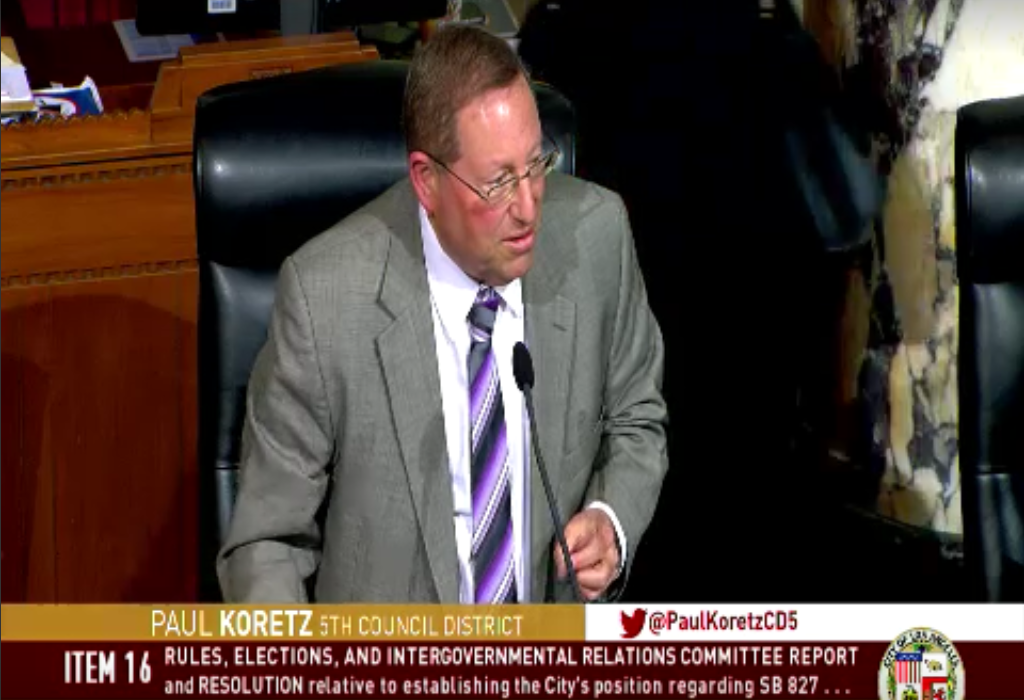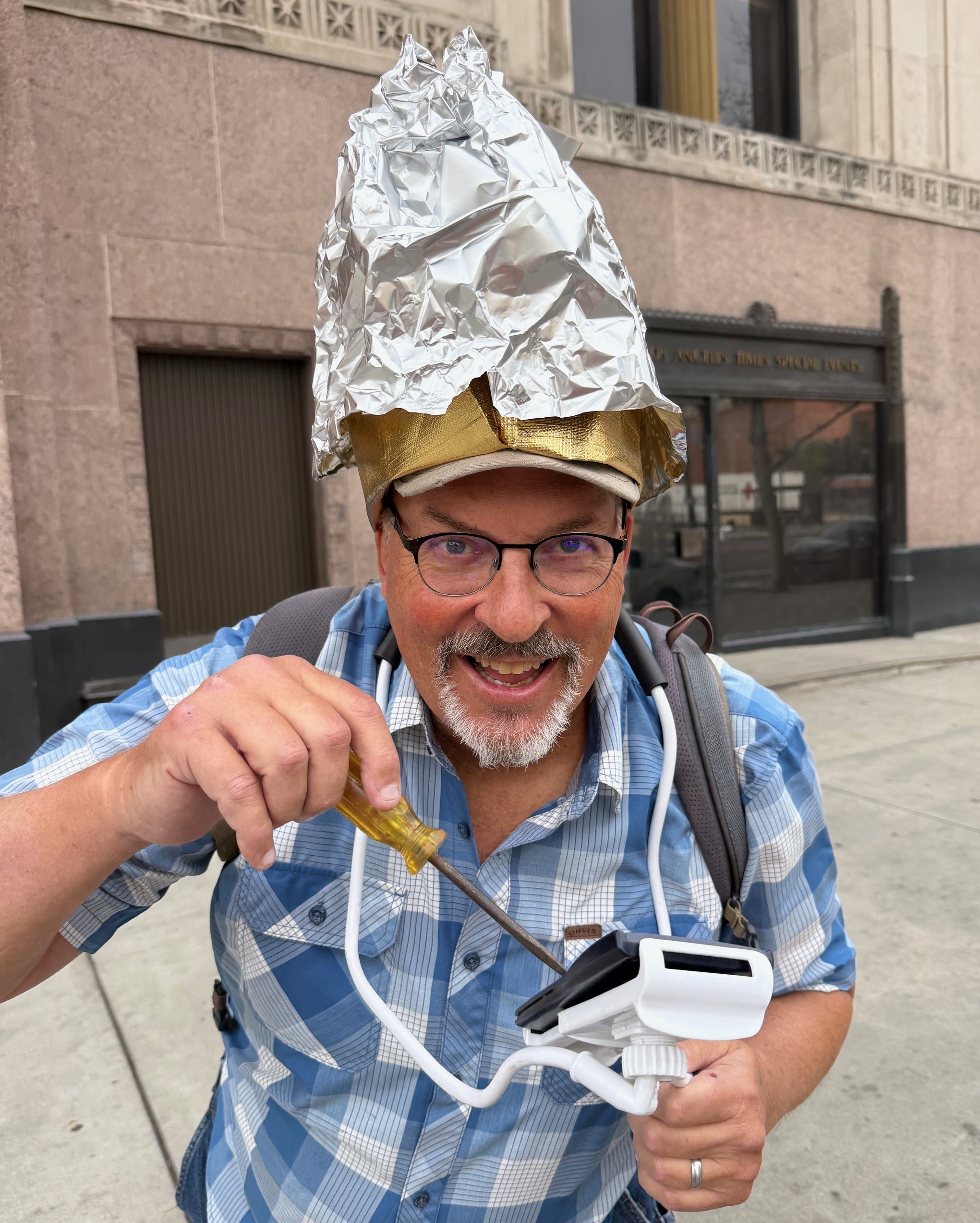The Los Angeles City Council voted unanimously Tuesday morning for a resolution opposing State Senate Bill (S.B.) 827, the bill authored by State Senator Scott Wiener (D-San Francisco) that would override local zoning near transit to allow for denser housing.
The resolution -- introduced by Councilmembers David Ryu and Herb Wesson -- is just the latest twist in the ongoing fight over Wiener’s bill, which has drawn opposition from the usual anti-development crowds, including the Coalition to Preserve L.A., the group that brought us Measure S, as well as equity organizations like ACT-LA. Unlike the Coalition to Preserve L.A. and other reflexively anti-development groups, ACT-LA and other equity and tenant protection organizations have opposed S.B. 827 over concerns that it could have the unintended consequence of exacerbating displacement in vulnerable neighborhoods.
While it’s not surprising that the city council would oppose the bill -- arguably the most aggressive attempt in recent memory by Sacramento to take away control of land use decisions from local governments -- the debate included nuanced discussion from some of the city’s most pro-housing and progressive councilmembers and offers a glimpse at possible paths forward in addressing the state’s dire housing shortage.
“This is a bad bill, but it is an absolutely unsurprising bill,” said Councilmember Mike Bonin. “This bill was inevitable because our current system is, in some ways, as bad as this bill. Our current system does not protect against gentrification and displacement. Our current system is also not providing the affordable housing that we need for our next generation, for our children, and for the people who are moving here.”
Bonin noted that Sacramento will continue to try to erode local control of planning until Los Angeles gets a handle on the housing shortage.
He called on Sacramento to fix the Ellis Act and to repeal Costa-Hawkins. And he said unambiguously that Los Angeles needs more housing, especially affordable housing.
“Los Angeles’ population is not going to shrink,” he said, calling for the city to approach the process of updating local community plans with the question, Where are people going to live?
“We can’t freeze our city in amber and pretend we don’t need more housing,” Bonin said. “But we also can’t blow up our neighborhoods and bury it beneath the Sacramento overreach that is at the heart of this bill.”
Councilmember Mitch O’Farrell echoed his colleague’s sentiments and called for a bill that has “ironclad” tenant protections. He added the need for reforming the California Environmental Quality Act (CEQA), which he noted is often used as it was not intended--to delay good projects.
Councilmember Joe Buscaino said, “I appreciate the catalyst that this bill is trying to accomplish, but it’s too blunt a tool as it’s currently written.”
He encouraged staff to continue working with Wiener’s office to make it a better bill.
“While few cities are trying to tackle the problem, too many others have their head in the sand and are ignoring the problem [and] pushing the burden on to other cities,” he said.
“We’re failing to build enough housing in both big cities and small,” he said, but he likened S.B. 827 to taking a “chainsaw” instead of scalpel to a patient.
Councilmember José Huizar said the substance of S.B. 827 “makes sense.” But, he added, the bill gives away too much without incentivizing affordable housing.
“The affordable housing component should have been the driving force for this,” Huizar said.
Huizar reiterated that the status quo was not desirable, either, and he worried that the process by which the city is updating its community plans would simply continue to be a mechanism by which wealthy communities would protect themselves from future growth and force housing, especially affordable housing, into the communities that have historically taken on most of the burden.
Still, he said, “the intent of this bill is good.”
S.B. 827 has yet to have its first committee meeting, which will likely happen in the next couple of weeks. Still, the bill has generated much discussion and grabbed many headlines due, in part, to the overblown rhetoric surrounding it.
Councilmember Paul Koretz said at Tuesday’s hearing that the bill would “destroy the city.”
And at a Rules Committee meeting on the resolution last week, councilmembers heard from some members of the public who claimed that building more housing was incompatible with Los Angeles’ weather. Others argued that it would destroy the “quiet and quaint” neighborhoods.
Los Angeles Mayor Eric Garcetti registered his opposition to the bill because it doesn’t protect single-family homes.
“Mayor Garcetti appreciates Sen. Wiener's bold proposal to help address our housing crisis, and the most recent amendments are encouraging... But this bill is still too blunt for our single-family home areas,” a spokesperson for Garcetti’s office told the L.A. Times.







